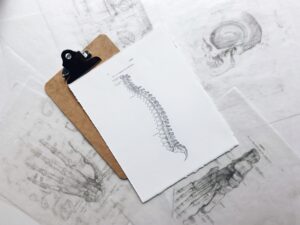If you’ve been dealing with neck and hand pain for a while, seeking treatment can be overwhelming. It’s hardest when you don’t know what the problem is or how to diagnose it, because this means that you’re not sure what kind of specialist you should see. The best doctor for neck and hand pain depends largely on the type of pain and the severity. If you really aren’t sure what’s causing the pain, one option is to schedule an appointment with your general practitioner. General practitioners won’t necessarily be able to diagnose a potentially complicated issue. However, if you describe your symptoms and the history of the pain, they can make a referral to the specialist they believe is appropriate. When seeking a specialist for both unexplained neck and hand pain, the first place to start is usually with an orthopedist. Orthopedists are physicians who can diagnose and treat bone abnormalities through bracing, casting, or surgery. Some skeletal issues are congenital in nature, while others develop later in life. If you’ve been injured in the neck or hands and need recovery treatment, an orthopedist helps with bone injuries. If the pain isn’t related to skeletal abnormalities or injuries, you might need to see another specialist. A rheumatologist can help if the underlying cause of the pain is an autoimmune disorder like rheumatoid arthritis. Your general practitioner might be able to order blood tests for autoimmune antibodies and other issues, and they can make a referral based on the results. Neck pain is most commonly a temporary condition that’s caused by a minor muscle or ligament injury. Hand pain can also be related to muscle injury. Most of these cases will resolve without medical treatment within a few days or weeks. These are some of the circumstances in which you should visit a health practitioner for neck and hand pain:
- The pain continues for more than three months
- The pain is severe enough to interfere with daily activities
- The pain is getting progressively worse and worse
- You have a fever
- You have previously-diagnosed conditions that make you susceptible to joint and skeletal injuries or autoimmune issues
- You have suffered an injury like an impact or twisting that might have injured your bones
Chiropractic Care for Neck and Hand Pain
Chiropractic care is an alternative therapy that more than twenty million Americans use to help treat various musculoskeletal issues. Chiropractors are best known for treating back pain, but they’re able to address alignment issues in any part of the musculoskeletal system. That includes both the hands and the neck. The exact treatment for you will vary depending on the underlying cause of the pain. When you go to the chiropractor and explain your symptoms and history, they’ll perform a physical examination. Based on the data they’ve gathered, they might move forward with any of the following:
- An explanation of the source of the pain and treatment options going forward
- An evaluation regarding whether joint manipulation can help align any issues
- Ordering of additional diagnostic tests like radiographs and x-rays to get a better look at the musculoskeletal system
- Referral to a medical professional that can treat an underlying medical condition unrelated to alignment
Chiropractic treatment has been shown to have the greatest rates of efficacy when it’s used to help after a trauma. If the body is having trouble healing from an acute injury, and there aren’t any skeletal cracks or damage apparent, there may be an alignment issue. Trauma to the bones, joints, muscles, or ligaments can cause the musculoskeletal system to slip partially out of place. Some people who have suffered neck injuries or hand injuries also find that their muscles atrophy during the injury recovery process, which can make support and proper posture harder. Whether or not a chiropractor will recommend hands-on spinal manipulations, they can give you treatment information regarding the following things:
- Proper posture and how to maintain it
- Self care strategies to prevent overuse injuries
- Stretches and exercises to do to alleviate pain, with the number of reps and times each week
- Feedback on your nutrition and diet and information on whether adjustments could help with pain levels
- A discussion of support devices like wrist braces and neck pillows to help align your body
To schedule an evaluation and start treatment, give us a call at 205-637-1363.







